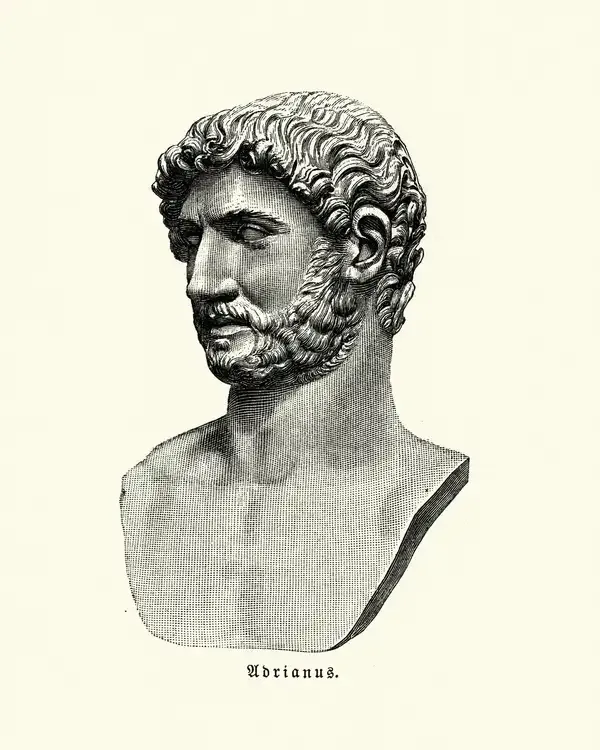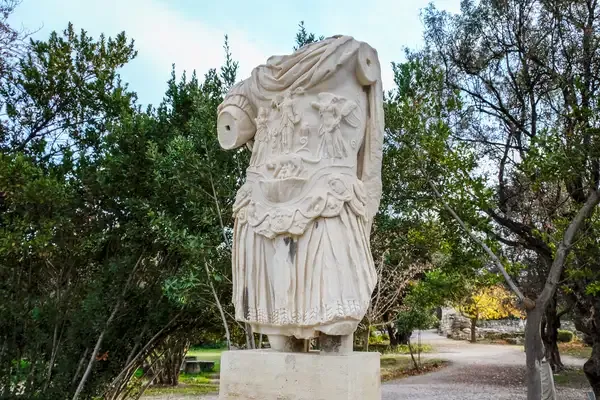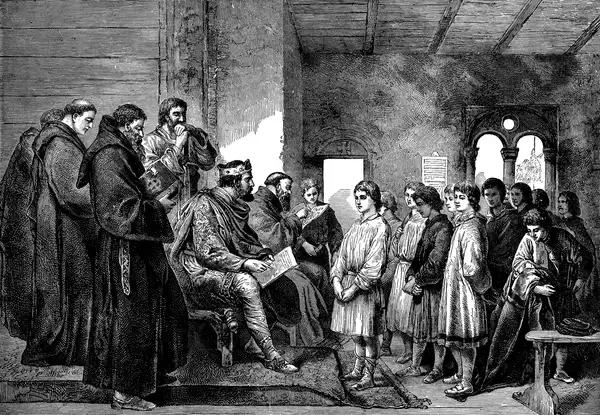What was Hadrian’s relationship with his Jewish subjects?
Hadrian's relationship with his Jewish subjects was fraught with tension and conflict. Initially, he appeared to attempt reconciliation, allowing the Jews some autonomy. However, his decision to rebuild Jerusalem as a Roman city and his prohibition of certain Jewish practices led to unrest. This culminated in the Bar Kokhba Revolt (132-135 CE), a significant Jewish uprising against his rule. Hadrian's harsh suppression of the revolt, including the banishment of Jews from Jerusalem, left a lasting impact on Jewish-Roman relations.

Hadrian's relationship with his Jewish subjects was complex and multifaceted, marked by both periods of relative peace and significant conflict. As the Roman Emperor from 117 to 138 CE, Hadrian's policies and actions towards the Jewish population in Judea had lasting implications for the region and its inhabitants.
Background of Hadrian’s Rule
Hadrian came to power during a time when the Roman Empire was vast and diverse. His reign is often noted for its architectural advancements and consolidation of Roman law. However, his policies regarding the Jewish people, particularly in Judea, would lead to one of the most significant revolts in Roman history.
Initial Relations with the Jewish Community
At the beginning of Hadrian's reign, his relationship with the Jews was relatively stable. He initiated policies that allowed for a degree of religious freedom and cultural expression. However, this atmosphere of tolerance would soon change as Hadrian made decisions that would alienate the Jewish populace.
Key Events Leading to Tensions
One of the most pivotal moments in Hadrian's relationship with the Jewish people was his decision to rebuild Jerusalem as a Roman city, renaming it Aelia Capitolina. This move was deeply offensive to the Jewish community, as it involved the construction of a temple dedicated to Jupiter on the site of the Second Temple, which had been destroyed by the Romans in 70 CE.
The Bar Kokhba Revolt
Hadrian's policies culminated in the Bar Kokhba Revolt (132-135 CE), a fierce uprising led by Simon Bar Kokhba. The revolt was a response to Hadrian's oppressive measures, including the prohibition of circumcision, which many Jews viewed as an attack on their religious identity. The revolt was initially successful, but it ultimately led to devastating consequences for the Jewish people.
Consequences of the Revolt
Hadrian's response to the Bar Kokhba Revolt was brutal. After quelling the rebellion, the Roman authorities enacted severe measures against the Jewish population. These included mass executions, enslavement, and the expulsion of Jews from Judea. Hadrian's policies aimed to suppress Jewish identity and culture, leading to a significant demographic and cultural shift in the region.
Impact on Jewish Identity
The aftermath of the Bar Kokhba Revolt had a profound impact on Jewish identity. The destruction of Jerusalem and the loss of sovereignty led to a transformation in how Jews viewed their religion and community. The focus shifted from national identity to religious and cultural preservation, laying the groundwork for the development of Rabbinic Judaism.
Hadrian's Legacy
Hadrian's relationship with his Jewish subjects is often remembered for its conflict and the tragic consequences of his policies. While he began his reign with a degree of tolerance, the actions he took against the Jewish population ultimately fostered resentment and resistance. This period marked a significant turning point in Jewish history, shaping the future of the Jewish people in the Roman Empire.
Chart: Summary of Hadrian’s Relationship with Jewish Subjects
| Period | Event | Impact on Jews |
|---|---|---|
| 117-130 CE | Initial policies of tolerance | Relative peace and cultural expression |
| 130 CE | Rebuilding of Jerusalem as Aelia Capitolina | Widespread discontent and resentment |
| 132-135 CE | Bar Kokhba Revolt | Mass casualties and loss of sovereignty |
| Post-135 CE | Severe repression of Jewish identity | Transformation of Jewish cultural and religious life |
Conclusion
In conclusion, Hadrian's relationship with his Jewish subjects was marked by a transition from initial tolerance to severe repression. The Bar Kokhba Revolt and the subsequent Roman response had a lasting impact on Jewish identity and culture. Understanding this complex relationship provides insight into the historical context of Jewish-Roman interactions and the evolution of Jewish identity in the face of adversity.












